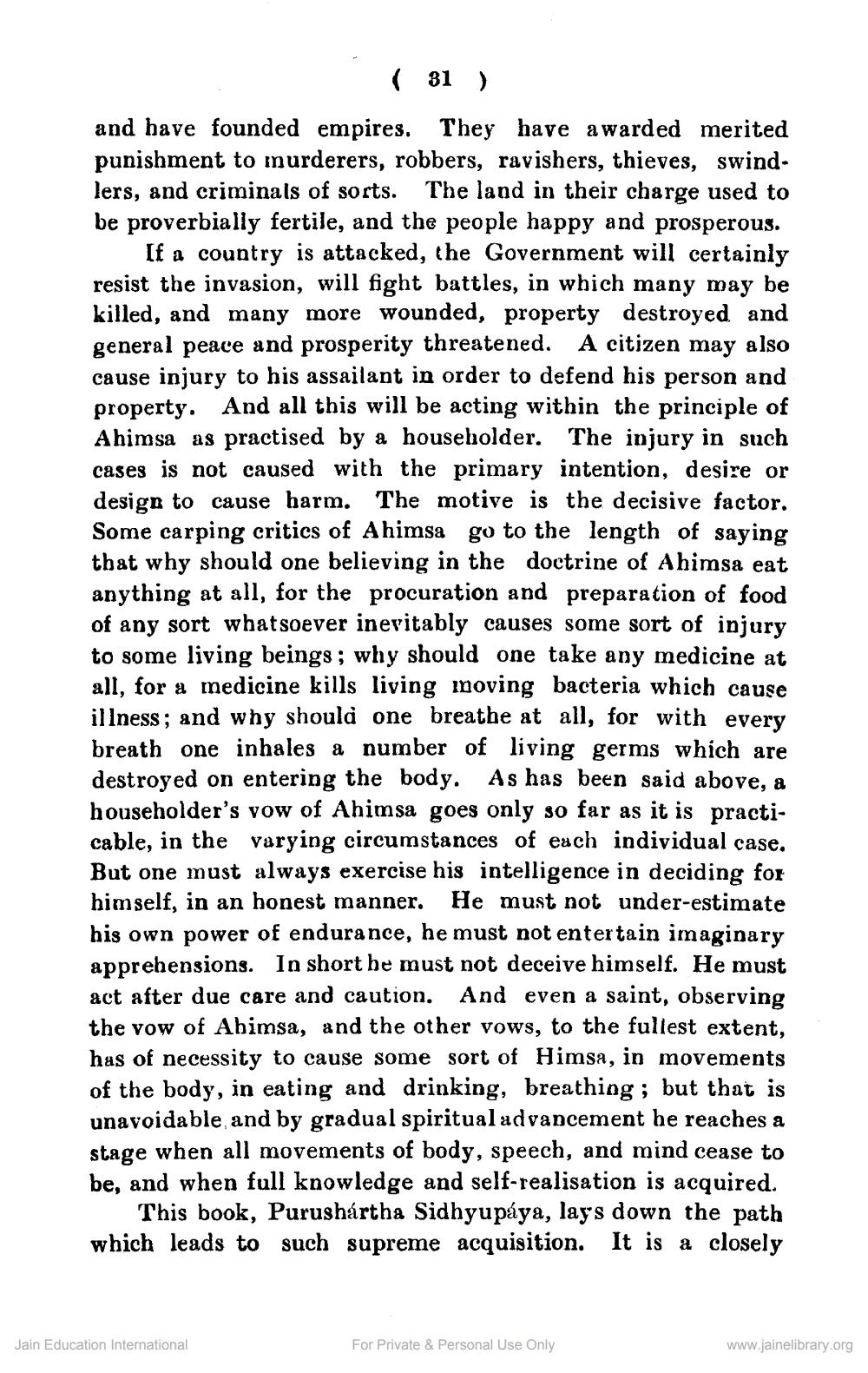________________
( 31 ) and have founded empires. They have awarded merited punishment to murderers, robbers, ravishers, thieves, swindlers, and criminals of sorts. The land in their charge used to be proverbially fertile, and the people happy and prosperous.
If a country is attacked, the Government will certainly resist the invasion, will fight battles, in which many may be killed, and many more wounded, property destroyed and general peace and prosperity threatened. A citizen may also cause injury to his assailant in order to defend his person and property. And all this will be acting within the principle of Ahimsa as practised by a householder. The injury in such cases is not caused with the primary intention, desire or design to cause harm. The motive is the decisive factor. Some carping critics of Ahimsa go to the length of saying that why should one believing in the doctrine of Ahimsa eat anything at all, for the procuration and preparation of food of any sort whatsoever inevitably causes some sort of injury to some living beings; why should one take any medicine at all, for a medicine kills living moving bacteria which cause illness; and why should one breathe at all, for with every breath one inhales a number of living germs which are destroyed on entering the body. As has been said above, a householder's vow of Ahimsa goes only so far as it is practicable, in the varying circumstances of each individual case, But one must always exercise his intelligence in deciding for himself, in an honest manner. He must not under-estimate his own power of endurance, he must not entertain imaginary apprehensions. In short he must not deceive himself. He must act after due care and caution. And even a saint, observing the vow of Ahimsa, and the other vows, to the fullest extent, has of necessity to cause some sort of Himsa, in movements of the body, in eating and drinking, breathing; but that is unavoidable, and by gradual spiritual advancement he reaches a stage when all movements of body, speech, and mind cease to be, and when full knowledge and self-realisation is acquired.
This book, Purushártha Sidhyu páya, lays down the path which leads to such supreme acquisition. It is a closely
Jain Education International
For Private & Personal Use Only
www.jainelibrary.org




